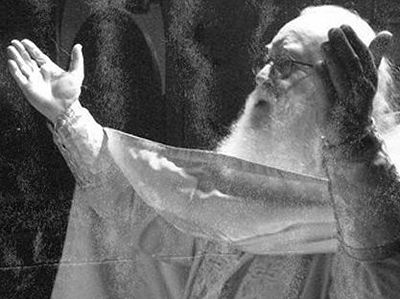At the heart of the modern narrative is a concern to alleviate and even eliminate suffering. This understanding is rooted in the Christian virtue of compassion. In many ways, however, modern compassion has been detached from its original context and become a thing-in-itself. Modernity is an arena where compassion has run amok, and, ironically, promises to create new and unique miseries in its wake. The Christian gospel is deeply entwined with the problem of suffering (when it’s properly taught). But it represents an understanding that is at odds with the modern account. As ironic as it may seem, Christians need to teach the world how to suffer that the world might be healed.
It is jarring to hear that we “need to teach the world how to suffer.” It conjures up notions of flagellants beating themselves with cords or other bizarre notions. It sounds callous and cruel and utterly lacking in compassion. But, to a large extent, the art of living is found in the art of suffering well. And, strangely, the failure to suffer well is perhaps the greatest source of suffering itself.
I will gladly place suffering that involves extreme pain within a separate category. It deserves its own separate treatment. But the larger category that we describe as suffering, largely consists of shame. Shame is the unbearable emotion, according to psychologists. It is also the first recorded human emotion in Scripture. The Christian life, properly lived, voluntarily bears the shame within our existence, and even volunteers to bear the shame of others. It is at the heart of the life of salvation. In the words of the Elder Sophrony, “The way of shame is the way of the Lord.”
So, what does this look like?
Suffering takes many forms. It can describe physical pain. It can describe emotional and social pain. In general, we can say that it describes human situations that we want to end or escape in order to feel better. Much of the pain that we experience in life is unavoidable: pain is an inherent part of the world we live in, both for good and for ill. Some pain is indeed avoidable but difficult to escape for a variety of reasons. Some pain is self-inflicted. But what we can say without fear of contradiction is that there is no such thing in this world as a pain-free existence. Everybody suffers.
Christ is deeply compassionate in His teaching and ministry. He heals, forgives, restores, etc. But it would be inaccurate to describe His ministry as primarily focused on the alleviation of suffering. There were essentially just as many sick people in the world after the ministry of Christ as there were before. For every leper He cleansed, many were not. He Himself noted, “The poor you always have with you.” So what was Christ’s relationship to suffering, and how should we understand His actions with regard to those who were suffering?
I take the actions of Christ to be signs of the coming of the Kingdom of God. They represent fulfillments of the Messianic promise: He has come that we might live. But He is utterly clear when He speaks to those who would follow Him: “Whosoever would be my disciple, let him deny himself, take up his Cross and follow me.” The Christian life is, without exception, an agreement to share in the sufferings of Christ and the sufferings of others, and to bear our own Cross through His grace. This is the life of true compassion (com-passion=to suffer with).
Where I would draw our attention in this article is the interior act of bearing our suffering. For it is there that the soul is formed and shaped into the image of Christ Crucified. There is a suffering that comes from pain, a suffering that comes from sadness and loss, but the most difficult to bear is the suffering that comes from shame. Our shame is generated by how we feel about “who we are.” Guilt is about “what I have done.” We can acknowledge guilt, but easily find ourselves crushed by shame.
Shame is a primary cause of anger and depression. Something happens and we encounter loss. We feel unworthy, or detached, or dismissed, or denied, or denigrated, etc. Generally, we react with anger or with depression, depending on many things within us. Both of these reactions remove us from the true burden of our suffering and create inauthentic suffering. Much of this occurs on an unconscious level. Our shame clouds the heart and the mind and we fail to see ourselves and the world as they are.
The only path to the truth in these situations is to bear the shame. St. John Climacus says, “You cannot escape shame except by shame.” (4.62) It is worth noting that the Elder Sophrony advised, “Teach them to bear a little shame.” This is something we do along and along, as the soul is able to bear it.
The inner act of acknowledging our shame, and sitting in its presence without anger or sadness, is an act of self-emptying. When we are in such a place we pray, “O God, comfort me.” It is then that the Holy Spirit, the Comforter, can enter in and grant us the great comfort of the image of Christ being formed in us. It banishes anger and dissipates sadness.
The acknowledging of our shame (whether deserved or not) is not the occasion for promising to do better or be better. Those are simply efforts not to acknowledge it. Rather, we acknowledge it with patience and attention. The experience of shame (of any sort) is a deeply, profoundly vulnerable experience. In many respects, shame itself is a feeling of extreme vulnerability. We do not experience shame as “safe.” It feels extremely “unsafe.” Our willingness to acknowledge it to ourselves and to God is a sacrifice of vulnerability.
As a sheep led to the slaughter or a blameless lamb before his shearer is mute, so He opened not His mouth. (Isaiah 53:7)
Christ recognizes Himself in us when we bear our shame in His presence. He does not abandon us to death but comforts us. This is a deeply healing experience for the soul. It can and should be an essential part of confession and repentance, but can also be a part of prayer at any time.
This practice also goes to the heart of a proper Christian orientation to life in this world. Most people refuse to take up this Cross of shame. Instead they engage in anger and sadness, darkening their hearts and finally giving themselves over to violence and every form of pleasurable escape. But they do not escape. They become ever more deeply entrapped in the cycle of shame and death.
It is always possible for leaders and others to arouse the public by manipulating their anger and sadness, energized by the shame they cannot bear. Those leaders are able to direct that energy to violence and oppression, revolution and counter-revolution.
In the story of our first sin, Adam and Eve encounter shame. Their shame is not over their sin, but over their nakedness. Their shame causes them to hide from God and to blame others for their fall. The first victim is the unity of man and woman, then the destruction of unity with creation itself. God covers that primal shame with the “garments of skin.” He is not the cause of our shame. Ultimately He fulfills what is prefigured in those garments by giving us the garment of His own righteousness to cover our shame. It is within the righteous covering of Christ that we find the courage to bear the shame that has been ours from the beginning and to enter the comfort of God and the freedom that comes from Him alone.





